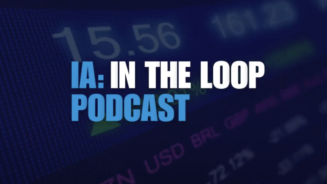In common with many Asian emerging markets, Malaysia has produced impressive GDP growth in recent decades.
International Monetary Fund (IMF) data shows its economy expanded at an annual average rate of more than 6% between 1980 and 2010.
This included a 7.3% contraction in 1998, triggered by the currency crisis that enveloped Asia the previous year – an event so traumatic three-quarters of the 40,000-strong expat population decided to leave Malaysia “in a matter of weeks”, recalls Clive Macdonald, managing director of Kuala Lumpur-based Advisers Worldwide.
Global impact
On that occasion, the Malaysian economy bounced back strongly, and it again demonstrated its resilience in the wake of the recent global banking crisis, which gathered pace with the collapse of Lehman Brothers in September 2008. The country’s GDP shrank by 1.6% in 2009, but rebounded with an expansion of 7.2% in 2010.
Momentum was weighed down last year by a range of global factors – including concerns over weakness in Western economies, political unrest in the Middle East, and manufacturing supply chain disruptions from the Japanese tsunami – but the economy nevertheless grew by an estimated 5.2%. The IMF forecasts progress at similar levels until 2016.
High tech business
While Malaysia has an official policy of reducing its dependence on agriculture and the export of raw materials – moving instead towards “high technology, knowledge-based and capital-intensive industries” – crude oil production remains a key component of the economy.
The US Energy Infor¬mation Administration estimates it has the third-largest oil reserves in the Asia Pacific region after China and India, and persistent high global energy prices have led the Government to encourage oil and natural gas exploration via tax and investment incentives in recent years.
This has brought many Western expatriates to the country and Macdonald, who moved to Malaysia 15 years ago, says the oil sector employs a significant proportion of his 400 clients.
Big changes
“Malaysia has changed since I first came here,” he notes. “I would say the biggest area is oil-related – oil services, drilling, equipment – and telcos after that. It used to be more broad-based. There were a lot more technology and manufacturing people, but that has changed.”
Oil workers are typically on two- or three-year contracts, he adds, although some clients have been in the country for over a decade.
Stuart Williamson, the chief executive officer of Mont¬pelier Wealth Management, a Kuala Lumpur-based adviser with almost 1,500 clients, tells a similar story, estimating that as much as half of his firm’s new business is linked to oil.
But while Montpelier has a growing number of employees from the oil industry and other “blue collar” sectors on its books, it also provides services to professional workers and retired expats.
In particular, the company targets high net worth individuals seeking to make lump sum investments of more than £100,000 ($160,000).
Williamson, who moved to Malaysia in 1993, after spells in Hong Kong, Bangkok and Bahrain, says the firm had its best year in more than a decade in 2011, in terms of growing its funds under management. About 80% of its business comes from lump sums, and Montpelier has a dedicated portfolio management team which runs client money, typically within life insurance wrappers.
For Williamson, the most exciting growth area for advisers in Malaysia is likely to be pensions. He highlights the impact of Malaysia My Second Home (MM2H) – a scheme promoted by the Malaysian Government to boost the number of wealthy foreigners choosing to settle there.
My second home
Formerly known as the Silver Hair programme, which was only available to those aged 50 and above, MM2H is open to citizens irrespective of age, and offers a renewable ten-year social visit pass with multiple-entry visa.
Applicants under 50 must demonstrate that they have liquid assets of MYR500,000 ($160,000) and MYR10,000 in monthly offshore income, and agree to open a fixed deposit account of MYR300,000. Individuals over the age of 50 face similar requirements, although the thresholds for liquid assets and fixed deposit accounts are lower.
According to the Ministry of Tourism’s MM2H website, some 12,000 people have joined the scheme since launch.
Chinese expats formed the biggest group of applicants between 2002 and 2011, followed by those from Bangladesh, the UK, Japan and Iran.
Williamson says MM2H is “a great system” for retired expats who move to Malaysia, because they are not taxed on income from their overseas pensions.
Ringgit erosion
However, Macdonald warns the scheme’s appeal has been eroded by a strengthening of the ringgit against sterling and high domestic inflation.
Not only is Malaysia facing “a massive property bubble”, he claims, but the prices of everyday goods has also risen. Pensioners fond of a tipple may be in for a particular shock.
Macdonald says: “People came here five years ago thinking they were going to have a good standard of living, that their money would go further.
“That is probably not the case anymore. I think people’s money goes further in the UK at present than it does here. For example, if you want a pint, it is going to cost you about £7. The cheapest bottle of wine – what you will pay £4-5 for in the UK – will cost £15-20 here. Tax is one issue for people, but ultimately the cost of living works against MM2H.”
Nevertheless, other advisers spy opportunities in the expat retirement market.
David Howell, chief executive officer of Guardian Wealth Management, says he expects to establish a six- to ten-man team in Kuala Lumpur within 12 to 18 months, primarily to focus on retirees.
Guardian, which has bases across Europe and the Middle East, began its push into Asia earlier this year with the opening of a Hong Kong office. Singapore will be next, according to Howell, followed by Malaysia.
The firm expects to recruit staff for Kuala Lumpur from the UK, he says, but would also consider acquiring an existing business if it was a good cultural fit.
Stepping stones
“Singapore will be our stepping stone into Malaysia,” says Howell.
“Our vision is to create an international financial planning service, regulated in different jurisdictions, which can give clients advice when they cross borders into different regulatory environments.”
Guardian views the Malaysian advisory market as competitive, he adds, “but competition is good, because it raises the standards for the service that is given to clients.”
While Guardian is yet to approach the Labuan Financial Services Authority for a licence to operate in Malaysia, another multi-jurisdictional advisory company – Globaleye – is understood to already be in discussions with the regulator.
Tim Searle, chairman of the Dubai-headquartered firm, will “neither confirm nor deny” such rumours, but says he is intent on expanding the Asian side of the business.
Searle is upbeat on Malaysia as a growing retirement destination, as well as its potential to serve as a low-cost operational hub from which to support clients and businesses throughout the region.
“There are cost savings on doing certain activities in Malaysia, compared with Singapore,” he explains.
“One could put, for example, a call centre operation in Malaysia, calling into Singapore. Or if you wanted to increase your marketing support, do recruitment, training – anything like that – you could do it from Malaysia.
“Kuala Lumpur, Singapore and Shanghai are all in the same timezone, even though they are miles apart on the map. So it makes things like that very efficient.”
Getting a foothold
Searle adds that the Malaysian expat advisory market has a lot of “one and two-man bands” and could be ripe for consolidation, offering acquisition opportunities for companies seeking a foothold in the country.
Western life companies operating in Malaysia, meanwhile, are seeking to expand by targeting the country’s increasingly wealthy local population, rather than solely focusing on expats.
GDP per capita has more than quadrupled over the past 30 years, according to the IMF (see graph), and the Central Bank noted in its annual report for 2011 that domestic demand had played a key role in bolstering the Malaysian economy against external headwinds in the second half of the year.
Improved labour
Private consumption grew by 6.9% in 2011 (up from 6.5% in 2010), it said, aided by a “broad-based growth in income, following the overall improvement in labour market conditions and higher commodity prices”.
Friends Life established a Shariah-compliant insurance business there last year, and Royal London 360° is the latest firm to contemplate applying for regulatory approval.
Simon Pack, its international sales director, says Malaysia’s local savings market is particularly attractive.
“There is a growing middle class in Malaysia and some of them would like to save in hard currencies,” Pack adds.
“If you are contemplating sending your children to university, that university could be in the US, Australia or the UK – so you may want to save in the currency that your future liability is going
to be in.”




